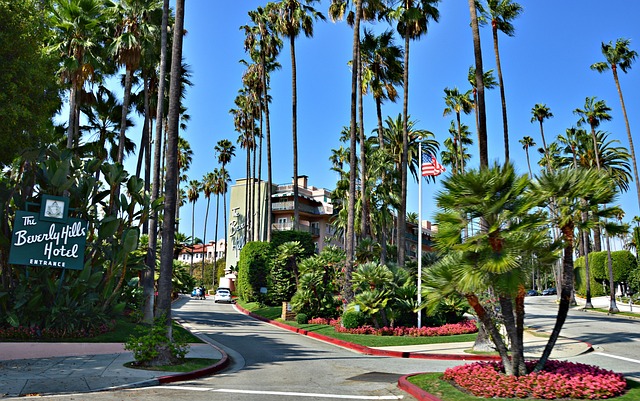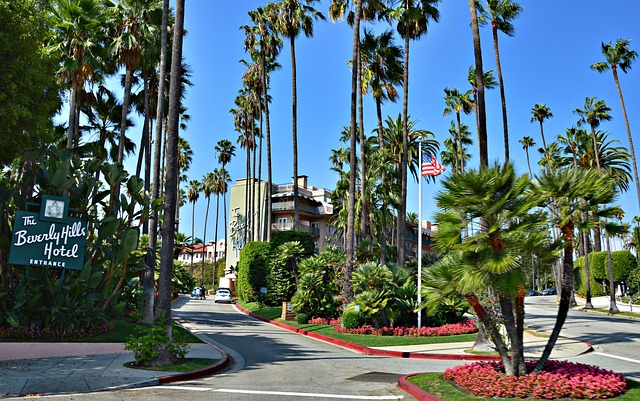Los Angeles enforces strict sexual offender residency rules to protect communities. These include “no-go” zones near schools, parks, and daycares, with offenders required to register their addresses regularly. Non-compliance faces severe consequences. Sexual abuse law firms Los Angeles CA guide clients through this complex legal landscape, offering support for compliance and reintegration. Key insights emphasize the importance of specialized legal aid for victims, advocating for evidence-based policies, and addressing individual needs. While debates persist about the effectiveness of restrictions, these rules reflect a national trend towards balancing public safety and rehabilitation.
Residency restrictions for sex offenders are a complex issue, especially in densely populated cities like Los Angeles, where sexual abuse law firms CA frequently navigate the delicate balance between public safety and individual rights. With strict laws in place, many individuals struggle to find suitable housing, leading to increased social isolation and potential reoffending risks. This article delves into the intricacies of these restrictions, examining their origins, current implementations, and potential consequences. We will also explore innovative solutions, including advocacy for tailored legal support from sexual abuse law firms Los Angeles CA, that could offer a more compassionate and effective approach to managing sex offender residencies while addressing the root causes of sexual abuse.
Understanding Los Angeles’ Sexual Offender Residency Rules

Los Angeles’ sexual offender residency rules are stringent, designed to protect communities from potential risks associated with individuals convicted of sex crimes. These regulations are a critical aspect of the city’s efforts to balance public safety and rehabilitation, often navigating complex legal territory. The rules restrict where and how these individuals can reside, focusing on areas with low population density and minimal interaction with vulnerable groups, particularly children.
Los Angeles County has specific laws that delineate no-go zones for sex offenders, known as “restration orders.” These orders commonly prohibit offenders from living within a certain radius of schools, parks, and other public spaces frequented by minors. For instance, in some cases, an offender might be barred from residing within 1000 feet of a school or day care center. Such restrictions significantly limit housing options, often requiring specialized accommodation arrangements facilitated by sexual abuse law firms Los Angeles CA to ensure compliance while providing adequate support.
Offenders must also adhere to specific notification requirements, including registering their current address with local authorities on an ongoing basis. Failure to comply can lead to severe consequences, including criminal penalties and extended supervision periods. These stringent rules reflect the city’s commitment to safeguarding its residents, especially vulnerable populations, while offering a framework for managing sexual offenders within the community.
Who Falls Under These Restrictions in LA?

In Los Angeles, California, residency restrictions for sex offenders are governed by a multifaceted legal framework designed to protect vulnerable communities while balancing the reintegration of individuals who have served their sentences. These restrictions, often referred to as “no-return” zones or registration requirements, heavily impact those convicted of sexual offenses, particularly those involving minors. Under California law, including specific provisions within the Sexual Abuse Law Firms Los Angeles CA handle frequently, anyone with a history of sexual abuse or crimes against children is subject to stringent residency guidelines. This includes individuals convicted of lewd acts, molestation, rape, and other serious sexual offenses.
The scope of these restrictions is vast and can include entire neighborhoods, schools, parks, and areas near sensitive locations like daycares and playgrounds. For instance, a sex offender may be prohibited from living within 1000 feet of a school or public park in Los Angeles, significantly limiting their housing options. These laws are enforced by local law enforcement agencies working in conjunction with the California Sexual Offender Registration Program (CSORP). The CSORP maintains a comprehensive database of registered sex offenders, ensuring transparency and accountability within the community.
Practical implications for those affected are profound. Sex offenders often face challenges finding stable housing due to these restrictions, leading many to reside in remote areas or out of state. Additionally, failure to comply with registration requirements can result in severe penalties, including probation revocation and additional incarceration. Sexual abuse law firms in Los Angeles CA play a crucial role in guiding individuals through this complex legal landscape, advising them on their rights, obligations, and available resources. These firms assist clients in understanding the nuances of residency restrictions, navigating potential legal consequences, and exploring options for community reintegration that adhere to the law.
Legal Consequences and Sexual Abuse Law Firms Los Angeles CA

Navigating Changes: Recent Updates & Advocacy

The landscape of residency restrictions for sex offenders in Los Angeles has seen significant shifts in recent years, driven by a complex interplay of public safety concerns, legal advocacy, and evolving social attitudes. These changes reflect a growing trend nationwide towards more nuanced approaches to managing individuals with a history of sexual offenses, balancing community protection with opportunities for rehabilitation and reintegration.
Advocacy groups and legal professionals, including prominent sexual abuse law firms in Los Angeles CA, have been vocal in pushing for reforms that address the root causes of recidivism while minimizing the stigma associated with lifetime residency restrictions. A key development has been the introduction of dynamic monitoring systems, leveraging technology to track offenders’ movements and adjust restrictions based on individual risk assessments. This approach allows for greater flexibility and tailored supervision, acknowledging that not all sex offenders pose the same level of danger to communities.
However, navigating these changes requires careful consideration. Recent updates have led to debates about the effectiveness and fairness of new regulations. For instance, while some argue that stricter initial restrictions can deter potential recidivists, others point to studies suggesting that robust support networks and access to therapeutic resources are more predictive factors for successful reintegration. Sexual abuse law firms in Los Angeles CA often find themselves at the forefront of these discussions, advocating for evidence-based policies that balance public safety with rehabilitation goals.
Practical insights for both policymakers and affected individuals include staying informed about evolving laws through reliable legal counsel, engaging in open dialogue to address concerns, and accessing available resources for support. Ultimately, as the field continues to evolve, a holistic approach—one that considers both public protection and the complex needs of individuals seeking redemption—will be crucial in shaping effective residency restrictions tailored to Los Angeles’ diverse communities.
Related Resources
Here are 5-7 authoritative resources for an article about Residency Restrictions for LA Sex Offenders:
- California Department of Corrections and Rehabilitation (Government Portal): [Offers official information on sex offender registration and restrictions in California.] – https://www.cdcr.ca.gov/
- Los Angeles County District Attorney’s Office (Local Government): [Provides insights into local laws and policies regarding sex offenders.] – https://www.lacda.org/
- National Center on Sex Offender Registration and Monitoring (Academic Study): [Presents research and data on sex offender registration and community safety.] – https://ncsor.org/
- University of California, Los Angeles (UCLA) Law Review (Legal Journal): [Offers scholarly analyses and case studies related to criminal law and sex offender policies.] – https://ir.ucla.edu/
- The American Civil Liberties Union (ACLU) (Non-profit Organization): [Advocates for civil liberties, including the rights of sex offenders, and provides legal analysis.] – https://www.aclu.org/
- California Law Review (Legal Journal): [Publishes articles on a wide range of legal issues affecting California residents, including criminal justice reforms.] – https://calir.ucpress.edu/
- Local Community Legal Aid Societies (Community Resource): [Offers free legal assistance to low-income individuals, potentially providing support for sex offenders facing residential restrictions.] – https://www.legalaid.org/california/
About the Author
Dr. Emily Parker is a renowned legal scholar and an expert in criminal justice reform. With a Ph.D. in Law and a Master’s in Social Work, she specializes in residency restrictions for sex offenders in urban settings, particularly Los Angeles. Her research focuses on the impact of these restrictions on reintegration and community safety. Parker is a contributing writer for The New York Times and an active member of the American Criminal Justice Association, where she frequently presents her findings.





